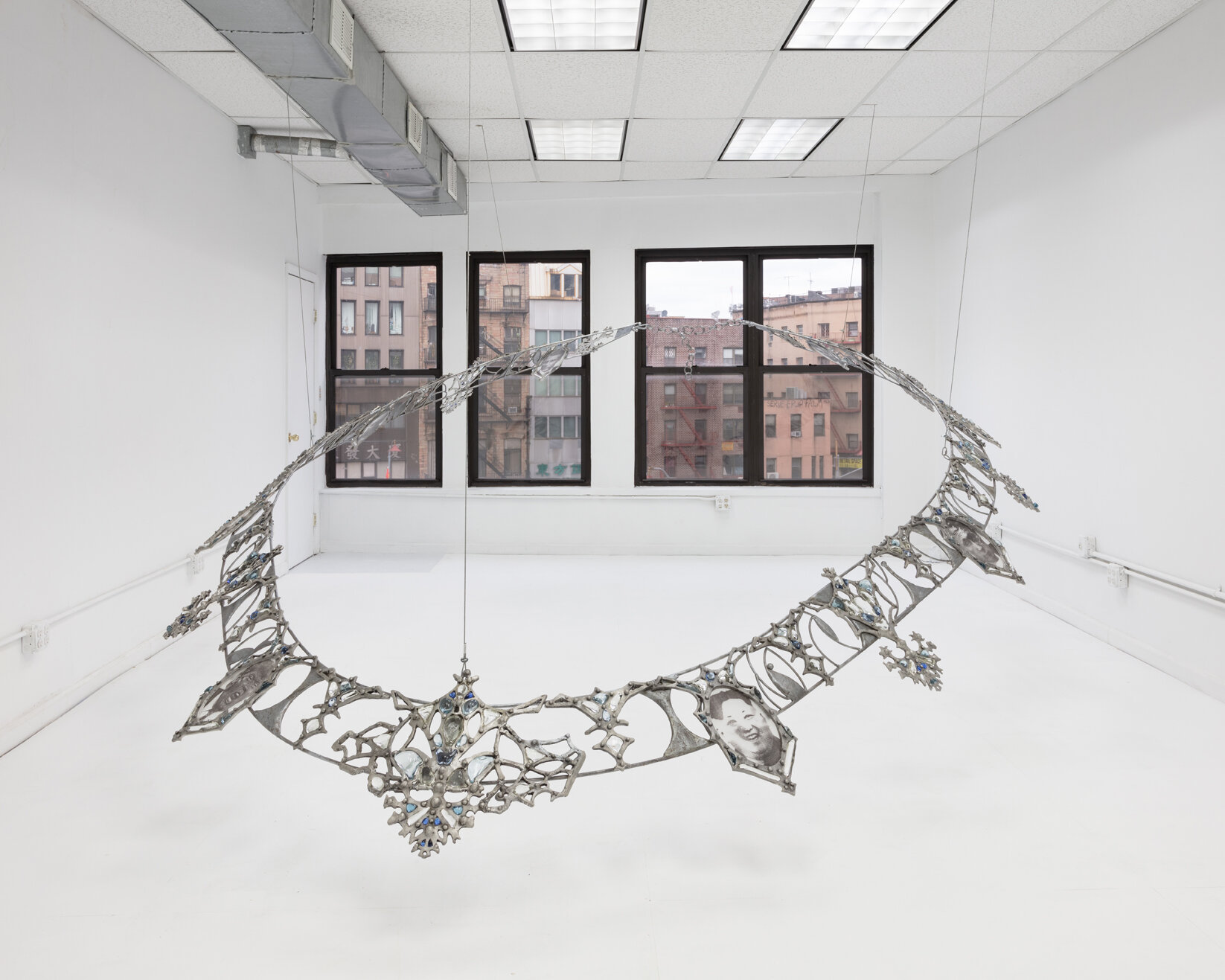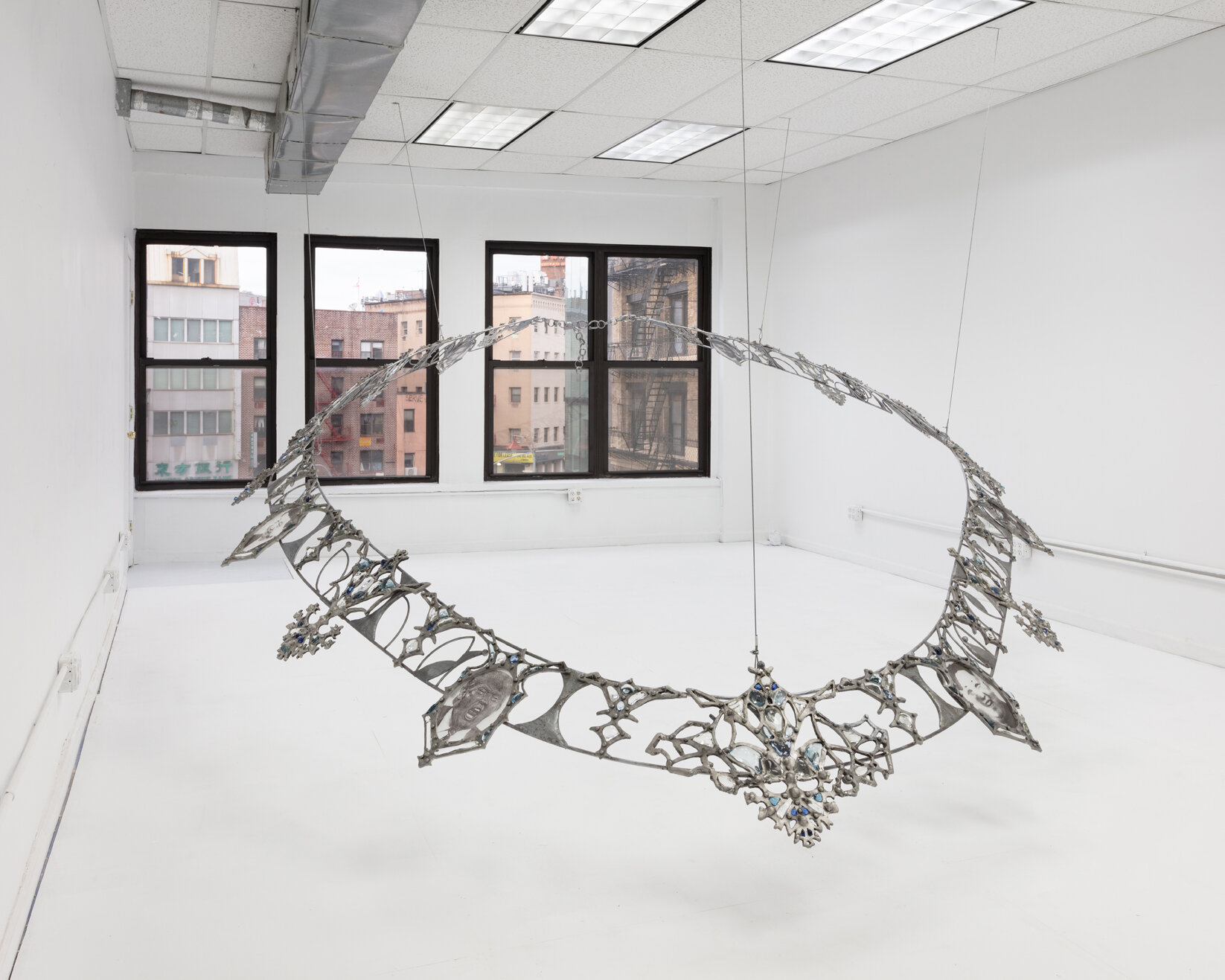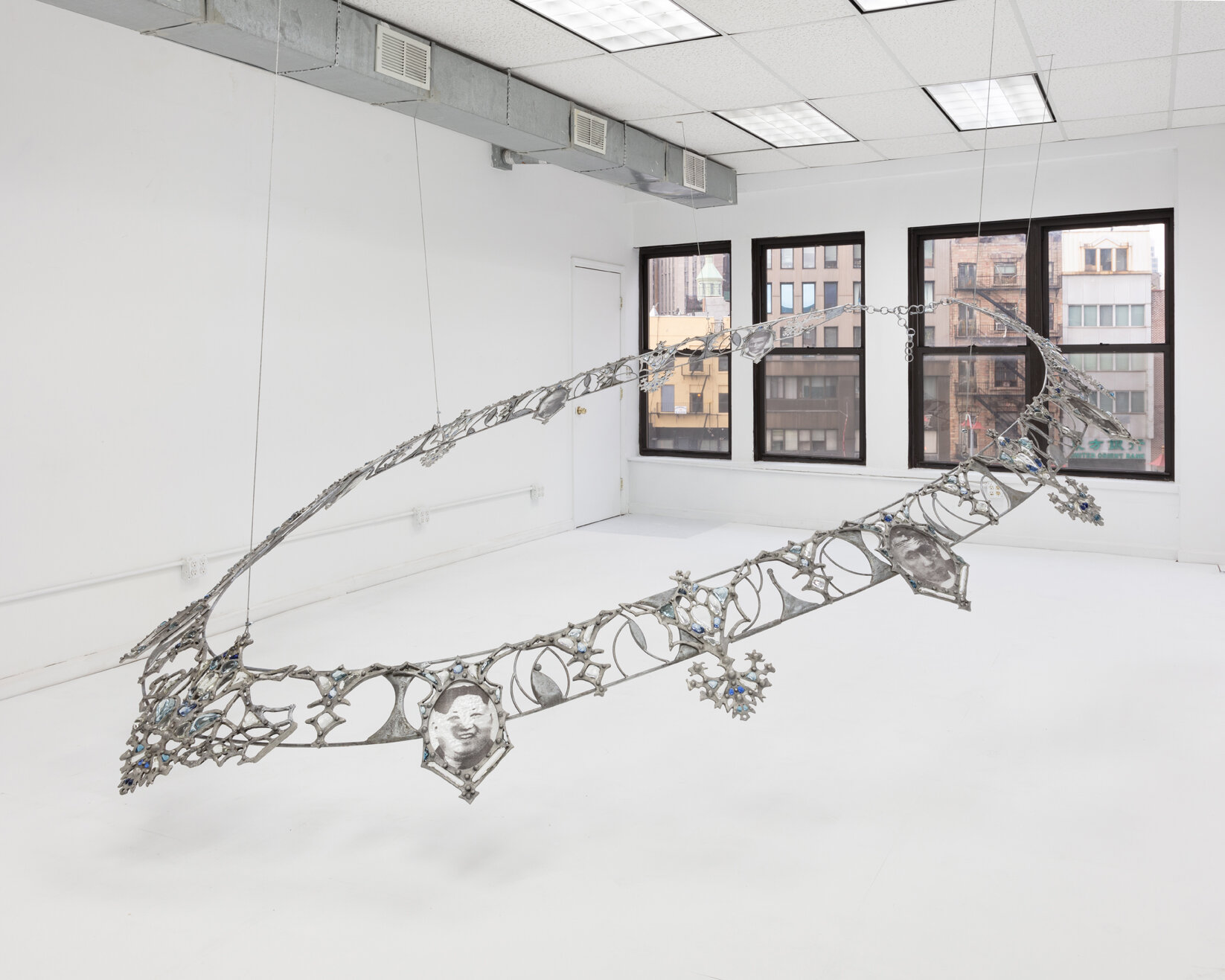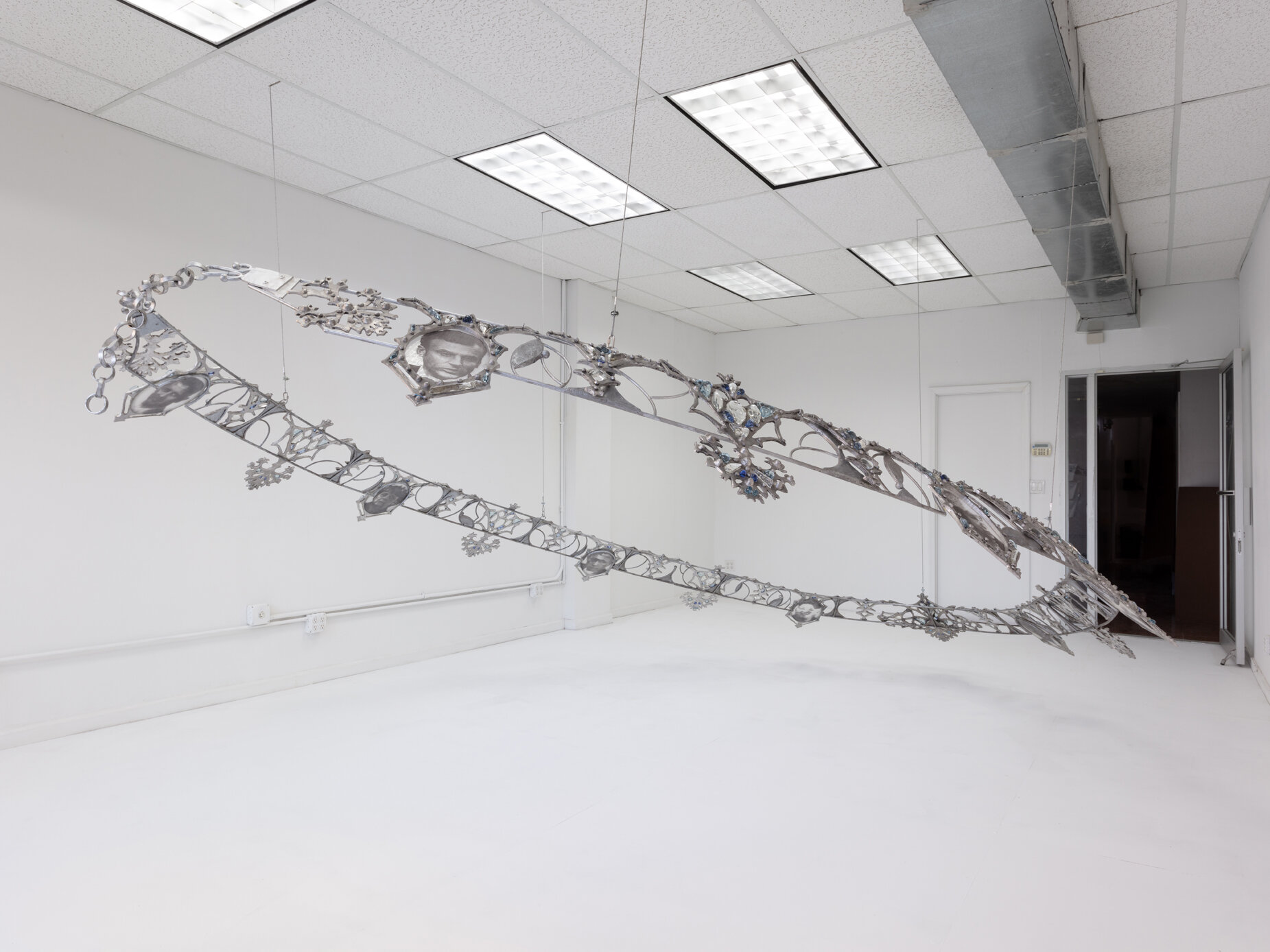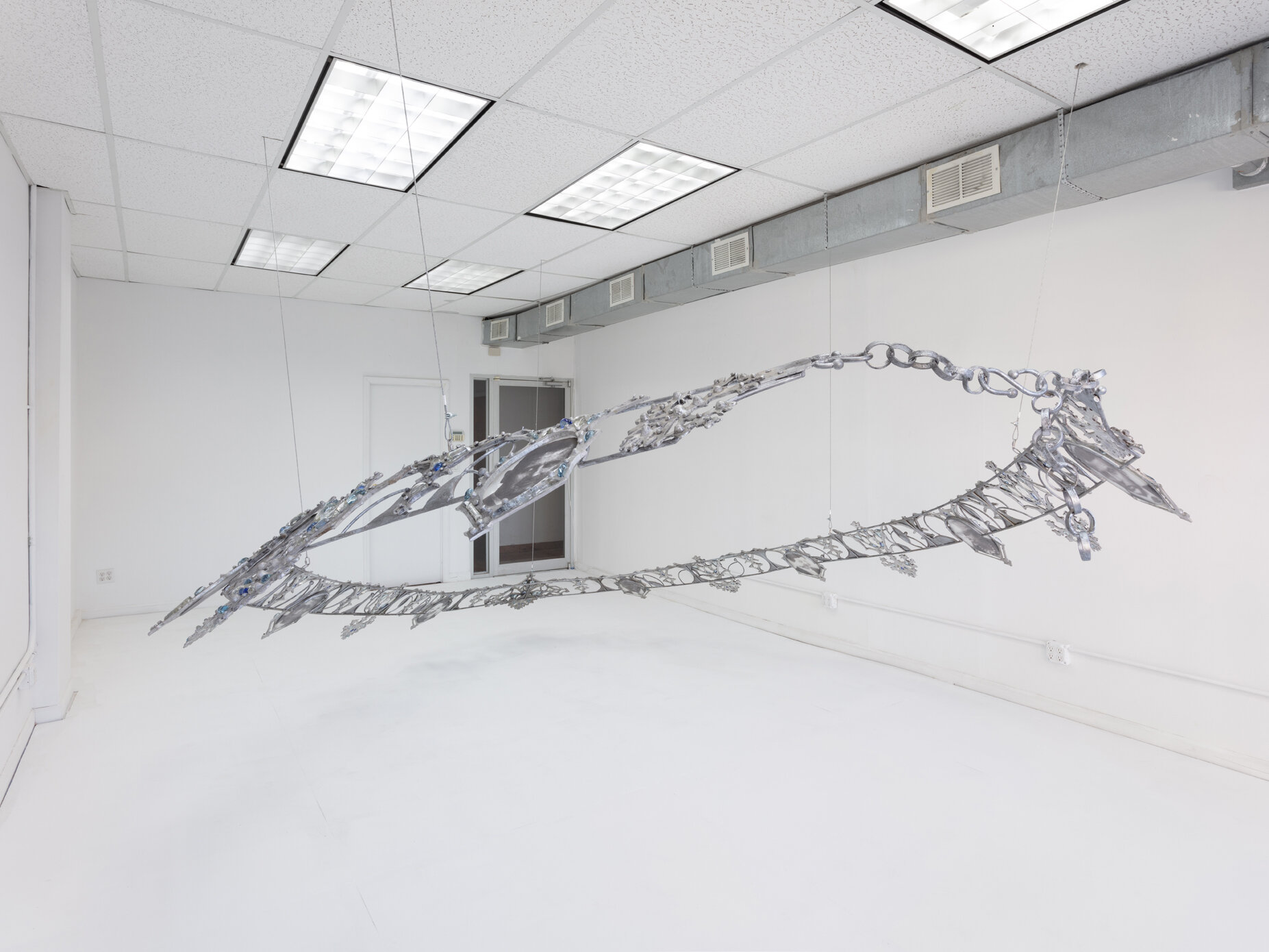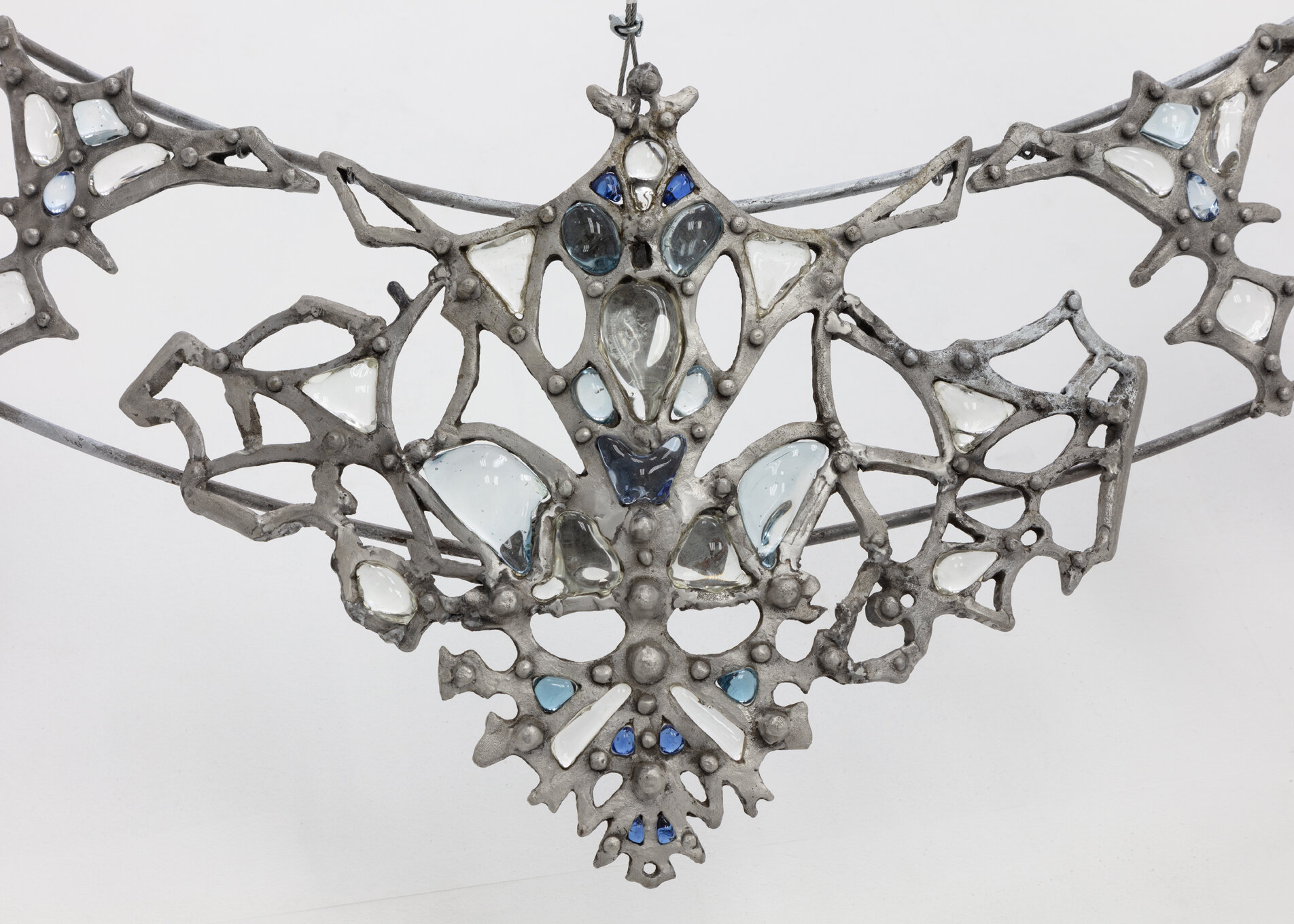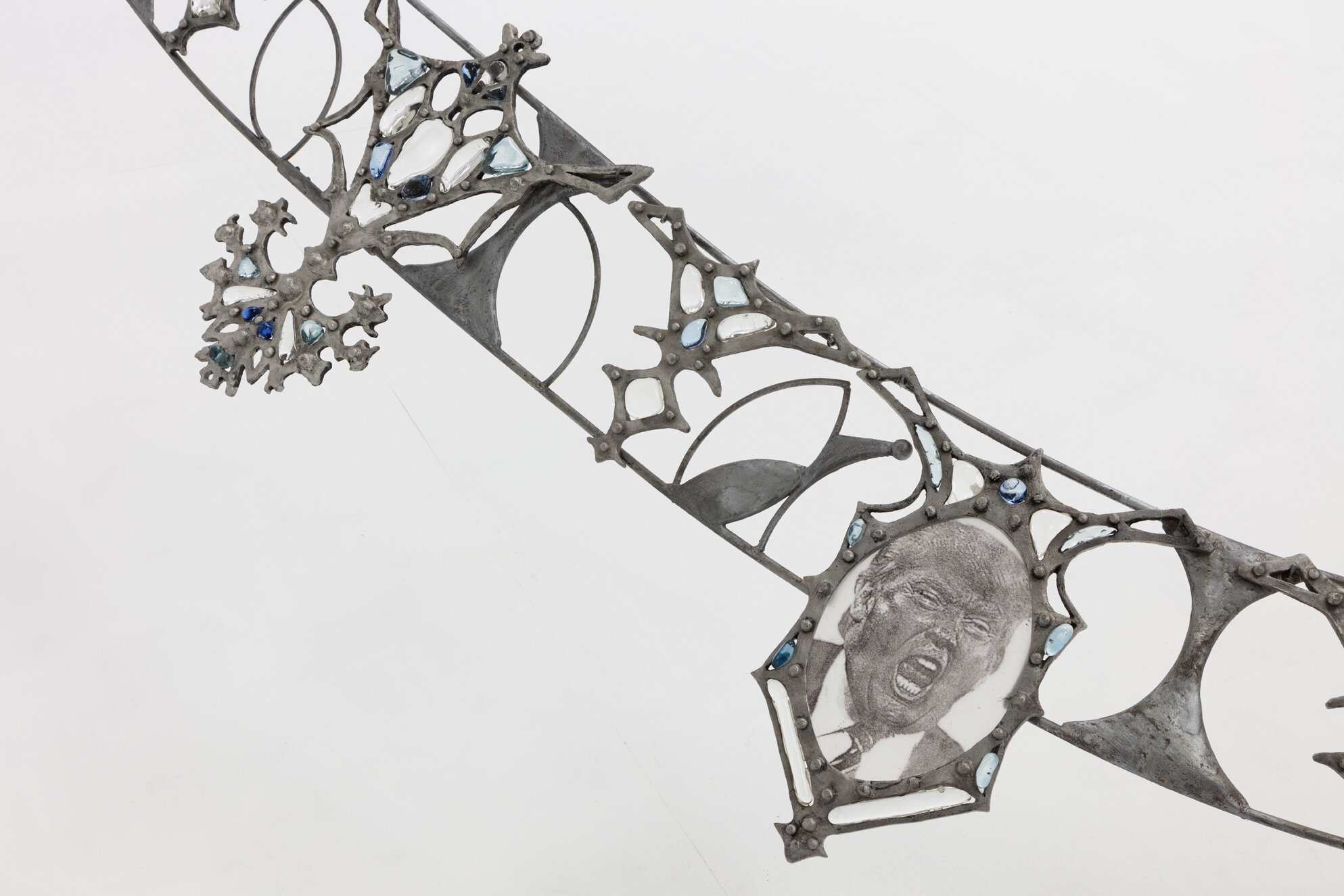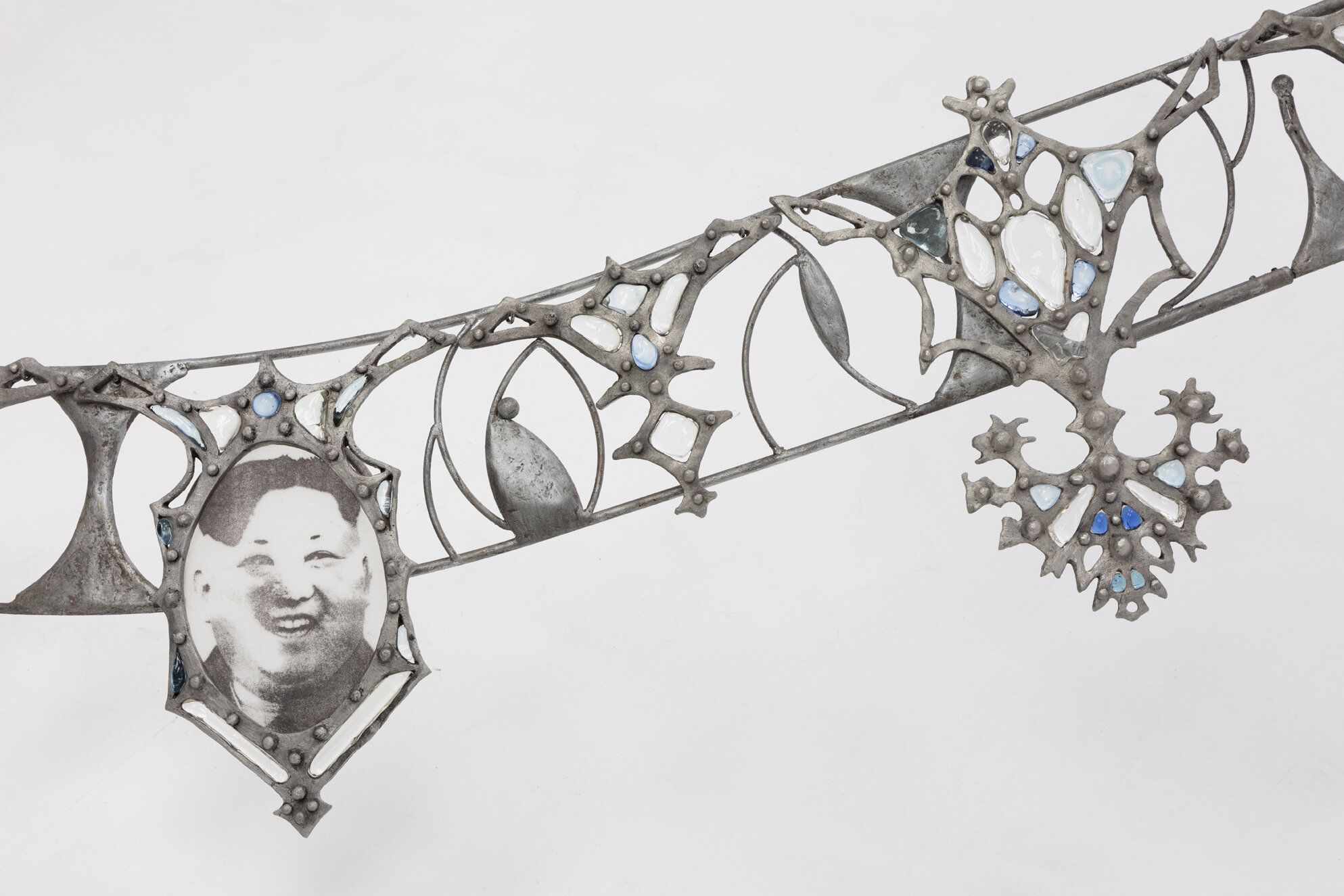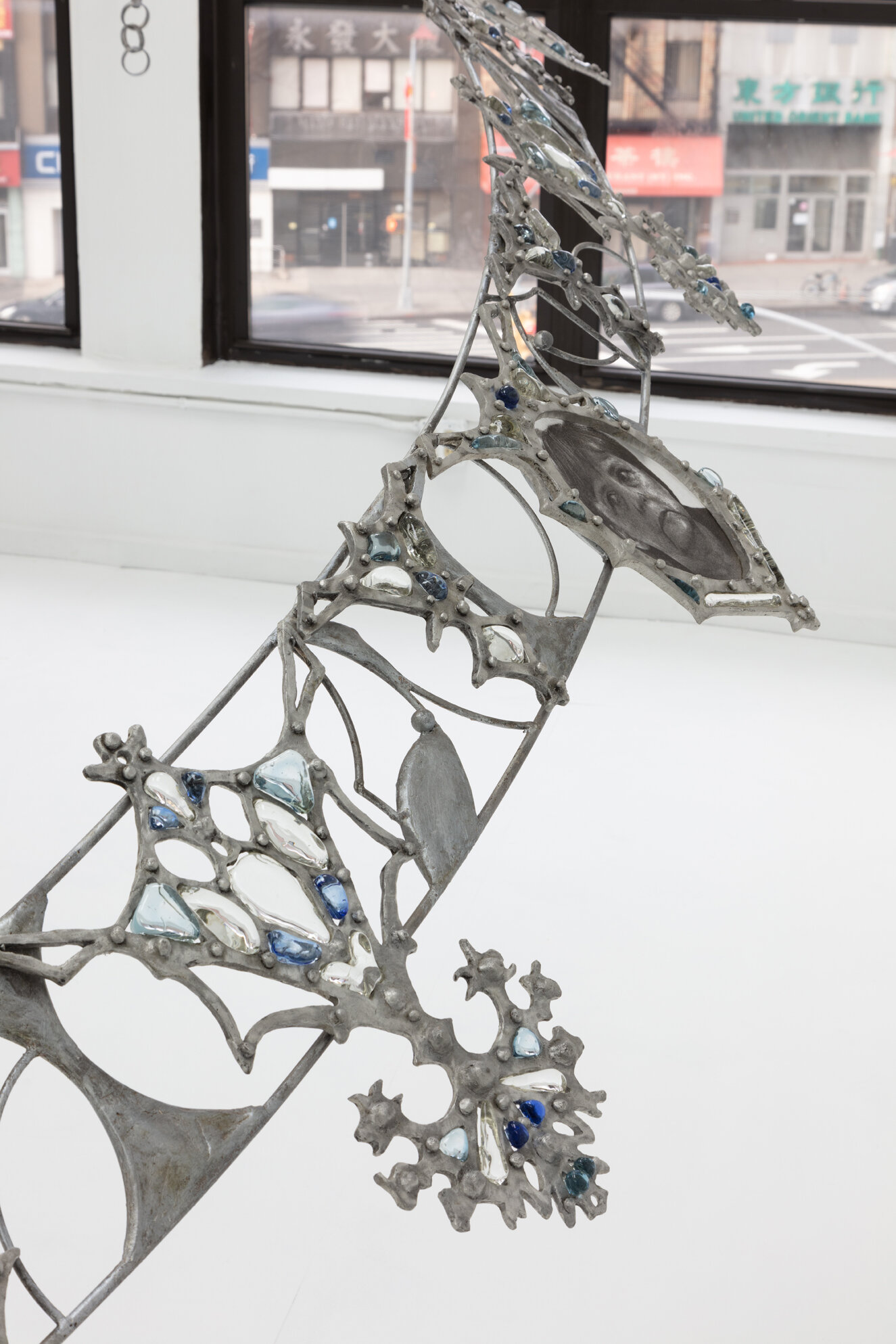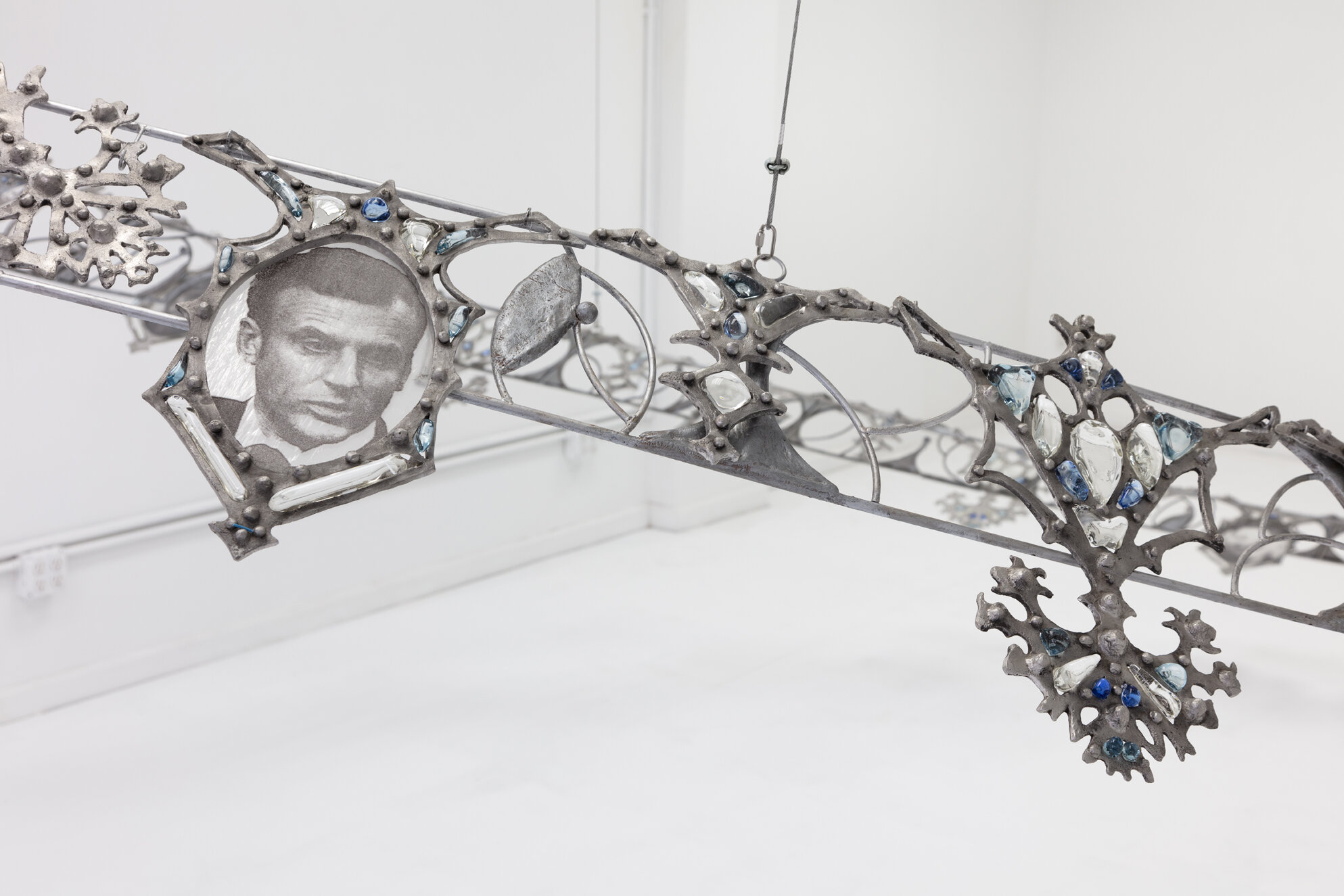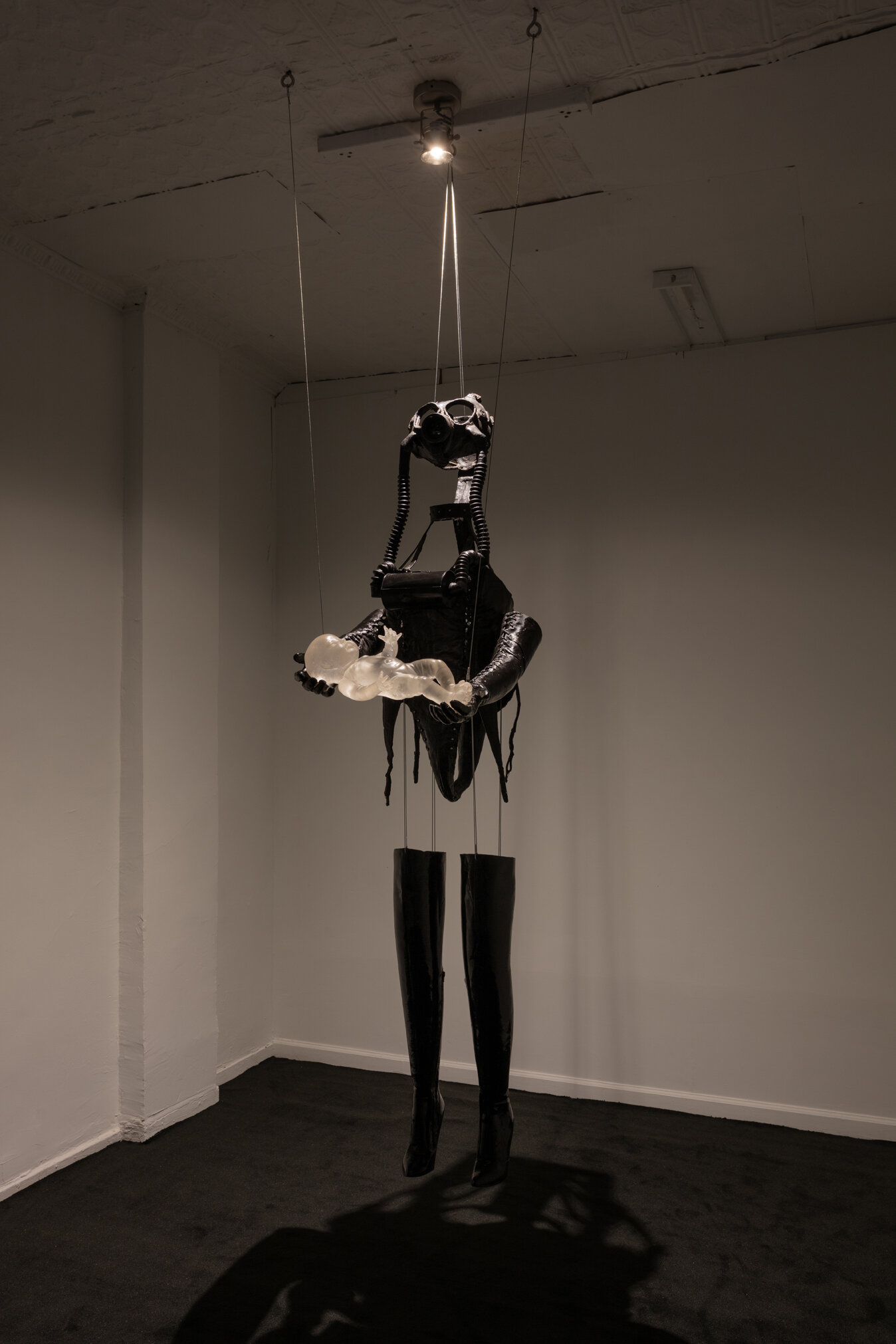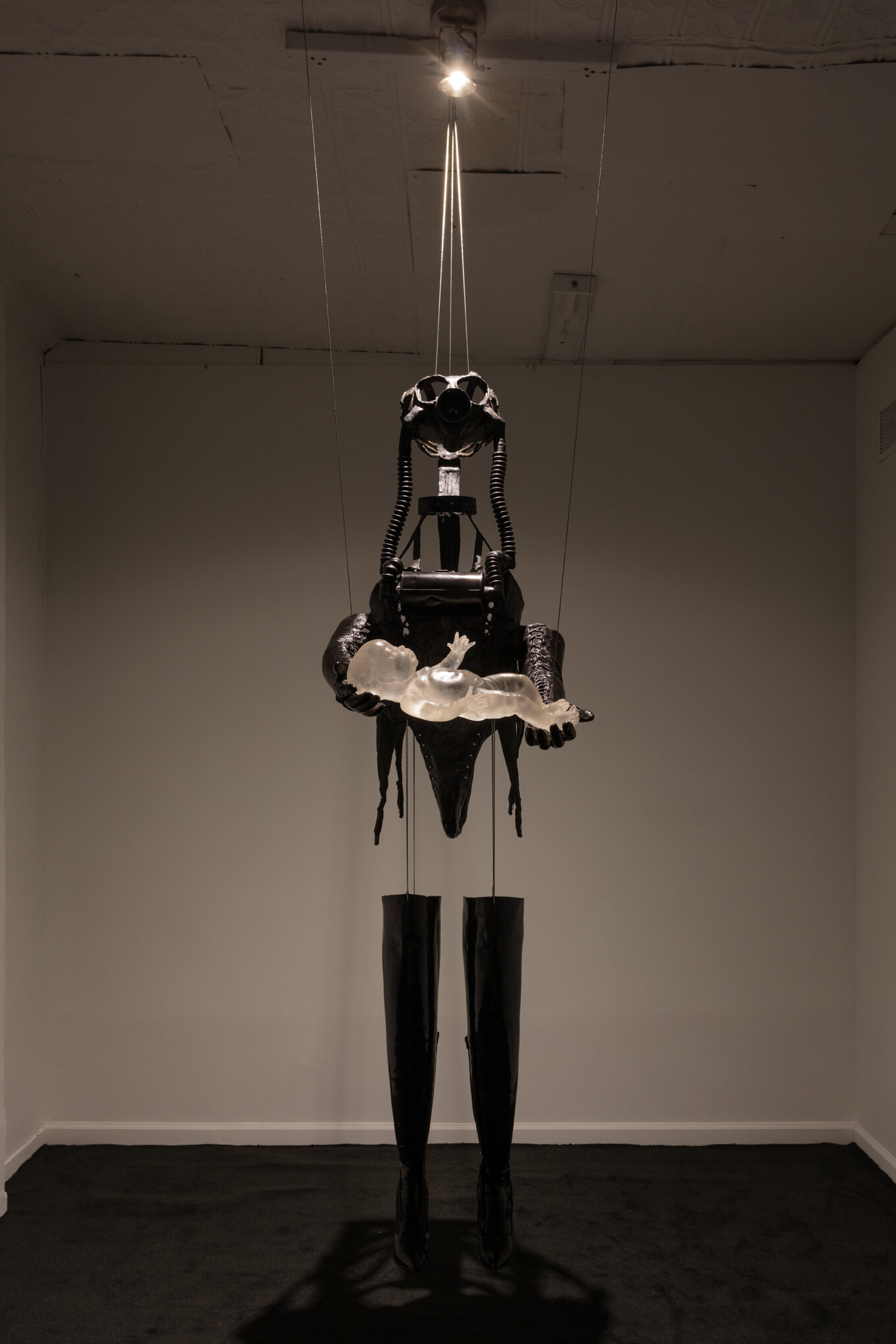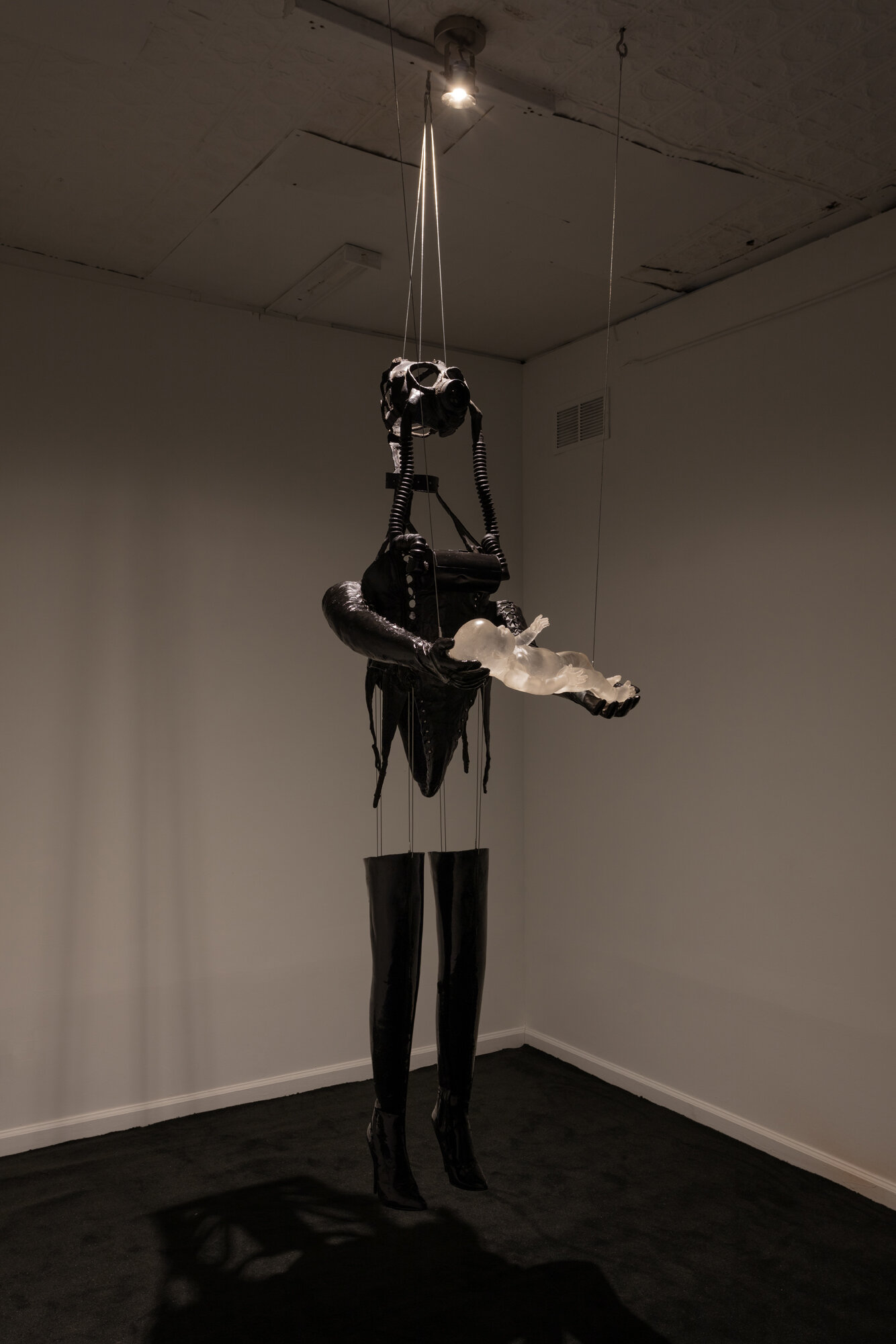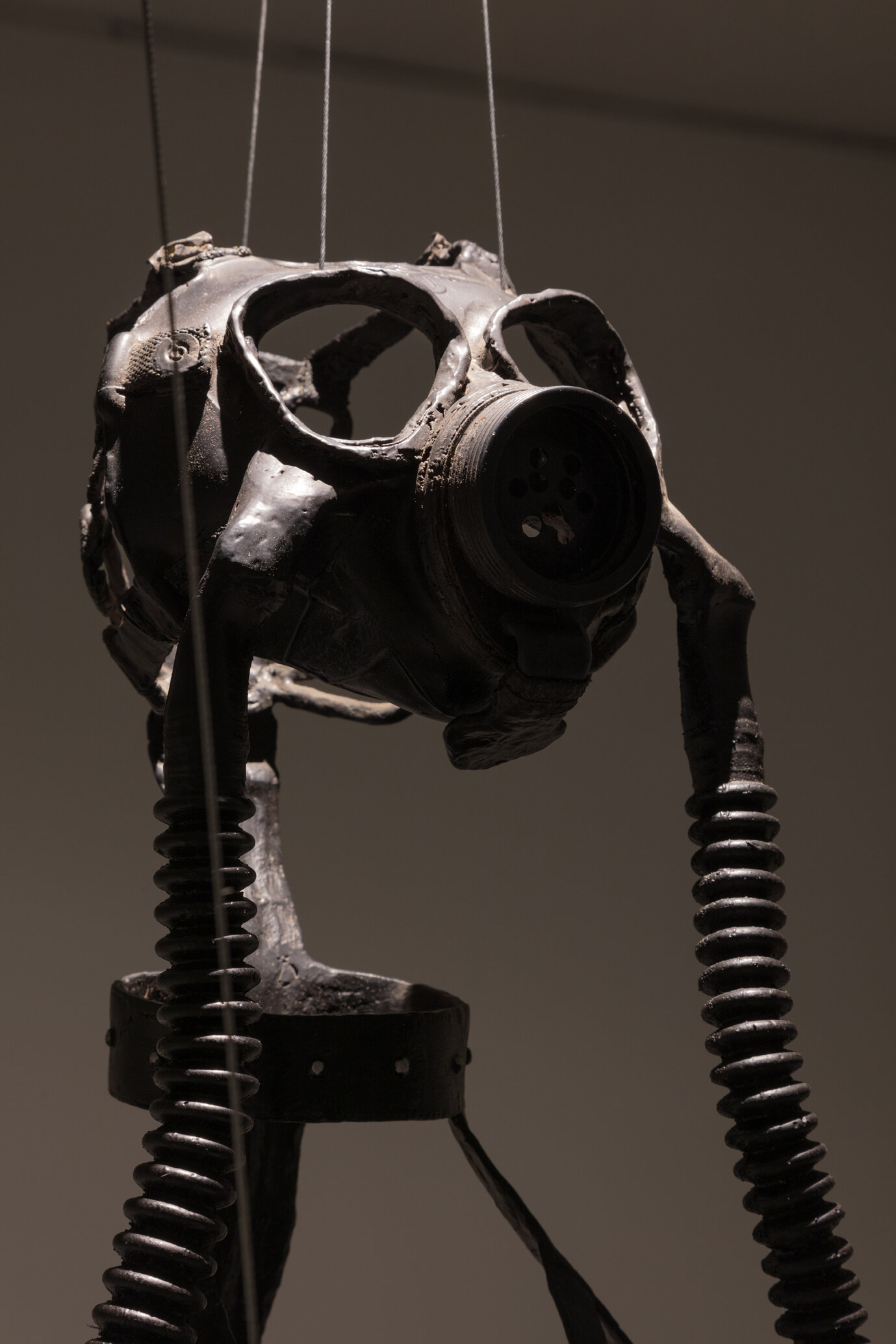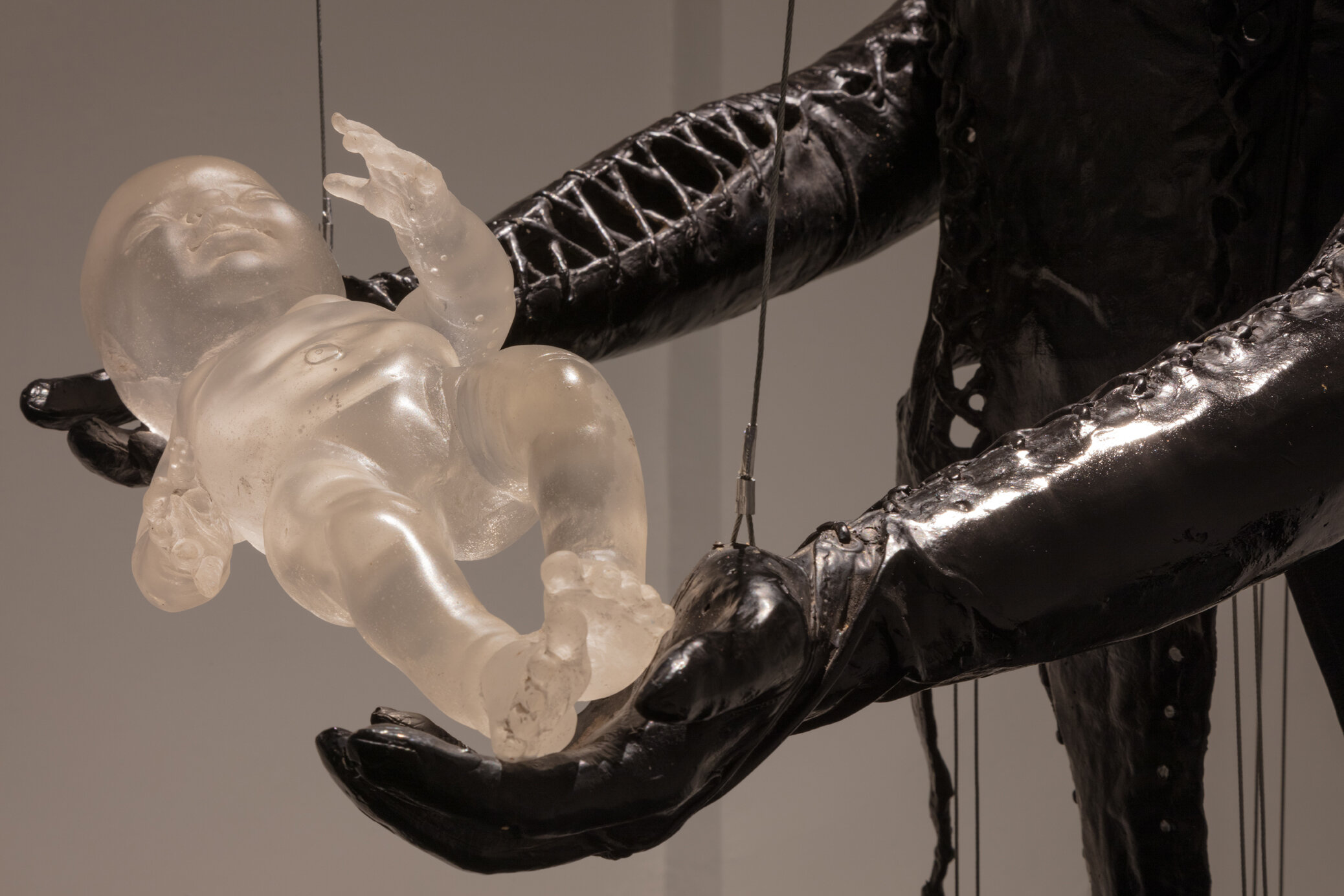Marsha Pels
Solace
December 10, 2020–February 14, 2021
Reception: Thursday December 10, 4–8pm
Press
The New York Times: 4 Art Gallery Shows to See Right Now
Artforum: Johanna Fateman on Marsha Pels
Hyperallergic: Marsha Pels’s Sculptures Offer Little Solace
Brooklyn Magazine: Sculptor Marsha Pels talks shop and remembers her friend Louise Bourgeois
Garage Magazine: “Solace” in the Afternoon
Precog Magazine: Marsha Pels with Florencia Escudero
The Way Magazine: Marsha Pels: la sua Solace alla Lubov di New York
Lubov is honored to present Solace, a solo exhibition of work by Marsha Pels. On view in an expanded gallery space, the exhibition consists of two major pieces by the artist made twenty years apart: Pieta (1998) and Fallout Necklace (2018), a work from the series Trophies of Abuse never exhibited before.
Think of Solace as a hyper-compressed Marsha Pels retrospective: two imposing sculptures, made twenty years apart. Both Pieta (1998) and the never before shown Fallout Necklace (2018) are exemplary meditations on the artist’s chosen materials and process, and both examinations of the vicissitudes of power. Both ask us to consider from whom we expect compassion, and who inevitably fails to deliver.
Over the course of four decades, Pels’ sculpture practice has drawn both from her autobiography and deep historical research, treating subjects such as gender identity, war and power, and contemporary politics. With an inventive and improvisational spirit, Pels has mastered intensive processes such as metal casting and fabrication, glass flameworking, and photoetching, as well as transformations of found objects. In short, anything—from broccoli to boots—is a plausible raw material, alchemized and concretized evocatively by her hand. Such transubstantiation infuses her sculpture with a remarkable psychological intensity and metaphorical strength.
In cast bronze and cast crystal, Pieta—Italian for “pity”—subverts the religious art icon of the Virgin Mary cradling the dead body of Jesus. Pels’s version deconstructs the myth of exalted motherhood: this mother is disembodied, contoured only by her leather fetish gear and a gas mask, cast in bronze, and just barely holding, away from her body, her fragile cast crystal baby. While the precise narrative remains ambiguous, Pieta figures a confrontational maternal ambivalence, the picture of a woman at war—with her own body, with the world controlling her body, with her child’s suffering powerlessness and her own. We may resent her lack of compassion, but recognize she is also in need of it.
Fallout Necklace contains a similarly jarring juxtaposition: along an outsized, ornately beautiful necklace (perhaps a tiara?) are powder-printed glass images of eight world leaders representing the global political superstructure. In clockwise order, Donald Trump, Vladimir Putin, Xi Jinping, Theresa May, Emmanuel Macron, Bashar al-Assad, Angela Merkel, and Kim Jong-un look out towards us or sideways at one another, among sinewy symmetric patterns of cast steel and aluminum, studded with colored glass gems. Pels’s contemporary critique is embedded within a simultaneous reference to and recreation of the 19th-century European style of “Cut-Steel and Berlin Iron” jewelry, known for its detailed and masterful metalworking in steel and cast iron. It came to prominence in France and Germany when royals enlisted aristocratic women to part with their precious gems in support of national war efforts. How many suffer today from leadership’s frightening omnipotence to hoard and consolidate wealth and power in the name of nationalism? Pels’s necklace, the trophy of abuse, embodies the insidious, interconnected architecture of nation- and world-making—its elaborate, pitiless beauty belying the inevitable fallout.
—Sara Softness, December 2020.
Marsha Pels has won numerous awards including a 1981 Public Art Fund Grant, a Prix de Rome in 1984, a Fulbright Senior Scholar award to Germany in 1997, a Pollock-Krasner Foundation grant in 2004, and a 2013 Adolf and Esther Gottlieb Foundation Individual Support Grant, among many more. Pels’ work is included in the public collections of Grounds for Sculpture, Hamilton, NJ; The Olbricht Collection, Essen, Germany; United Jewish Appeal Corporate Headquarters, New York; and the National Museum of Gabarone, Botswana, Africa. Pels lives and works in Brooklyn, New York.
